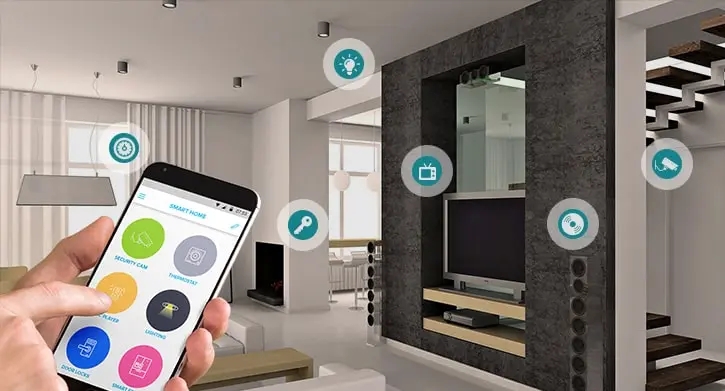Smart home technology has revolutionized the way we interact with our homes, offering convenience, comfort, and security. By integrating various devices and systems, smart home technology allows you to control and monitor your home remotely, creating a truly connected living experience.
Core Components of Smart Home
- Smart Hub: The central hub of a smart home system, it connects and controls various devices.
- Smart Speakers: Voice-activated assistants like Amazon Alexa and Google Home allow you to control devices with voice commands.
- Smart Thermostats: Smart thermostats can automate temperature control, optimizing energy efficiency.
- Smart Lighting: Smart lighting systems enable you to control the intensity and color of your lights, creating various moods and atmospheres.
- Smart Security Systems: These systems include security cameras, door sensors, and motion detectors to enhance home security.
- Smart Appliances: Smart appliances, such as smart refrigerators and smart ovens, offer advanced features like remote control and automated cooking.
The Benefits of Smart Home Technology
- Enhanced Convenience: Smart home technology simplifies daily tasks, allowing you to control lights, thermostats, and appliances with a simple voice command or a smartphone app.
- Increased Energy Efficiency: By optimizing energy usage, smart home technology can help you reduce your energy bills and minimize your environmental impact.
- Improved Home Security: Smart security systems provide peace of mind by monitoring your home and alerting you to potential threats.
- Personalized Comfort: Smart home technology allows you to customize your home environment to your preferences, whether it’s adjusting the temperature, lighting, or sound.
Tips for Implementing Smart Home Technology
- Start Small: Begin with a few basic devices, such as smart plugs or smart lights, to get a feel for smart home technology.
- Choose a Compatible System: Select a smart home system that is compatible with your existing devices and future plans.
- Consider Professional Installation: For complex installations, consider hiring a professional to ensure seamless integration and optimal performance.
- Prioritize Security: Protect your smart home network with strong passwords and regular software updates.
- Embrace Voice Control: Voice assistants can make controlling your smart home even more convenient.
The Future of Smart Home Technology
The future of smart home is exciting, with endless possibilities for innovation and improvement. As technology continues to advance, we can expect to see even more sophisticated and integrated smart home systems.
Some of the emerging trends in smart home include:
- AI-Powered Assistants: AI-powered assistants will become more intelligent, capable of understanding complex commands and providing personalized recommendations.
- Biometric Authentication: Biometric authentication, such as fingerprint and facial recognition, will enhance security and convenience.
- Energy Efficiency: Smart homes will become even more energy-efficient, with advanced features like dynamic pricing and predictive energy usage.
- Home Health Monitoring: Smart home can monitor the health and well-being of individuals, especially seniors and those with chronic conditions.
By embracing smart home technology, you can create a more comfortable, convenient, and secure living environment. As the technology continues to evolve, the possibilities for smart homes are truly limitless.







